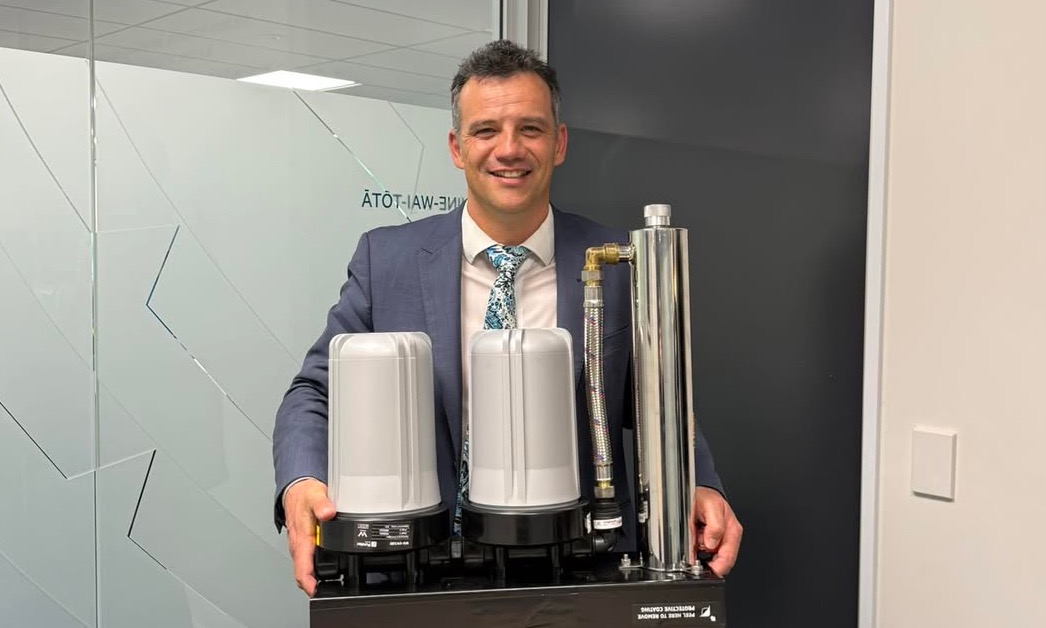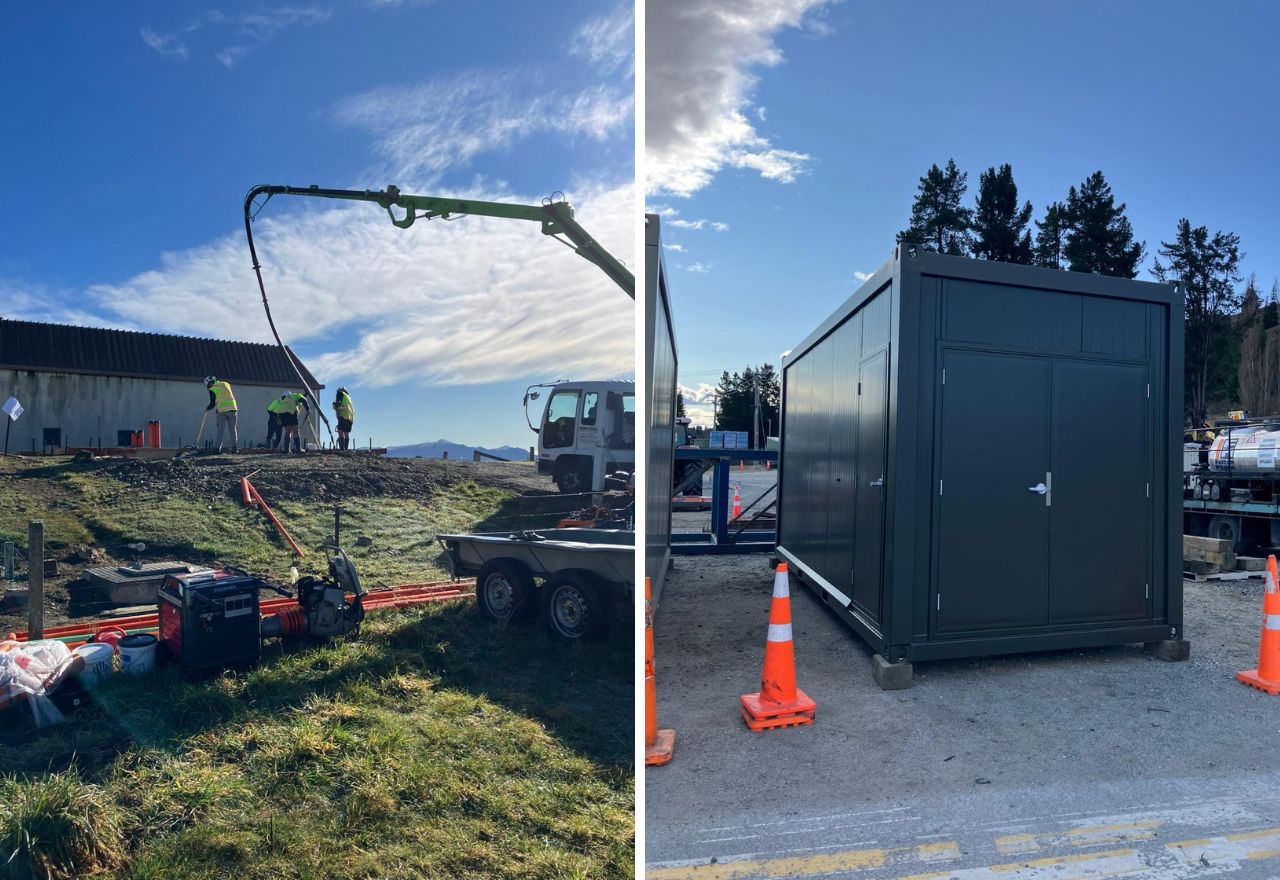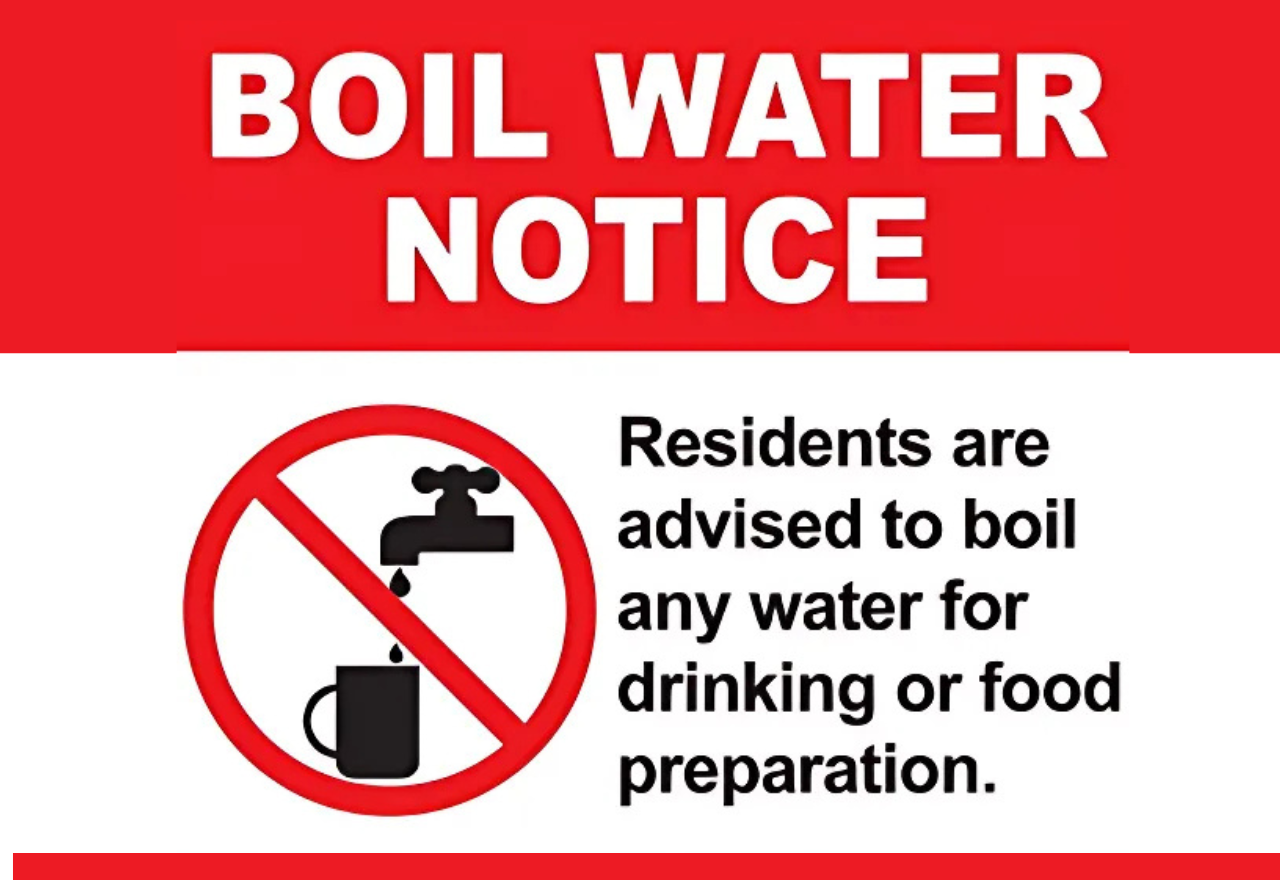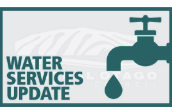MP backs ‘pragmatic’ fix for private water supplies
Kim Bowden
09 October 2025, 4:45 PM
 Southland MP Joseph Mooney at Taumata Arowai HQ in Wellington with an example of an acceptable drinking-water treatment solution capable of servicing up to three buildings. Image: Facebook/Joseph Mooney MP for Southland
Southland MP Joseph Mooney at Taumata Arowai HQ in Wellington with an example of an acceptable drinking-water treatment solution capable of servicing up to three buildings. Image: Facebook/Joseph Mooney MP for SouthlandSouthland MP Joseph Mooney says recent changes to national drinking-water rules will make it easier and cheaper for small rural water suppliers to meet their obligations.
Joseph visited national water regulator Taumata Arowai in Wellington to discuss the new “acceptable solutions” for private water supplies.
He told The Central App water supply is “incredibly important to folk living in rural areas”, particularly in inland Otago, and the policy changes are about adopting a “pragmatic” solution.
The new acceptable solutions apply to three common types of smaller drinking-water suppliers: rural schemes that supply both stock water and drinking water; drinking-water supplies that serve 500 people or fewer; and self-supplied buildings that provide drinking water to up to 500 people, such as a school or café.
Joseph said the changes allow water to be treated at or near the buildings where people drink it - for example, using cartridge filters and UV light.
“This presents new opportunities for a more straightforward and cost-effective way for some water suppliers to meet their responsibilities,” he said.
He encouraged rural landowners and small suppliers to use the regulator’s online self-assessment tool to check whether the new pathway could work for them.
Rural communities had expressed concern about the cost of preparing detailed water-safety plans under earlier rules.
Federated Farmers described earlier versions of the new drinking-water rules as "onerous”, saying the requirement to register, test, and report on all private water supplies “would have added significant cost, risk and hassle for absolutely no gain”.
The MP linked the latest policy move to the government’s wider Local Water Done Well programme, which allows councils to form joint arrangements for the delivery of water services.
“Local Water Done Well is about giving councils ownership and flexibility so they can tailor solutions that best serve their communities,” he said.
“Acceptable solutions are an added tool when either councils or landowners are considering how to supply water to various locations.”
Have a story to share or comment to make? Contact [email protected]
NEWS






